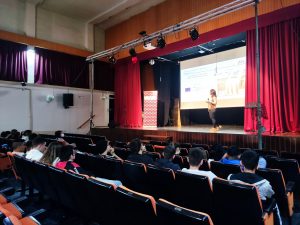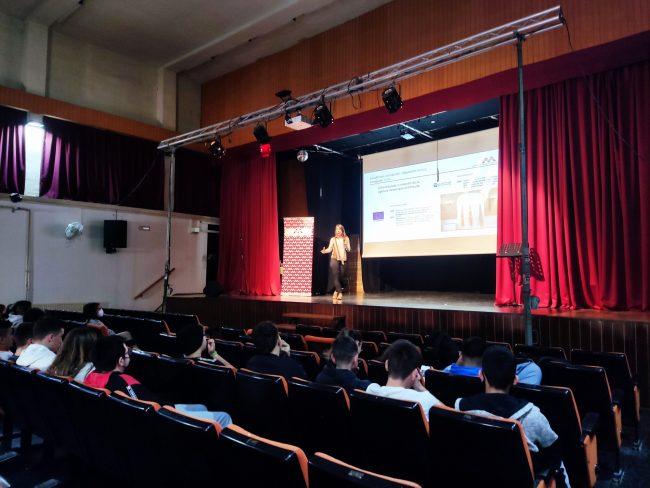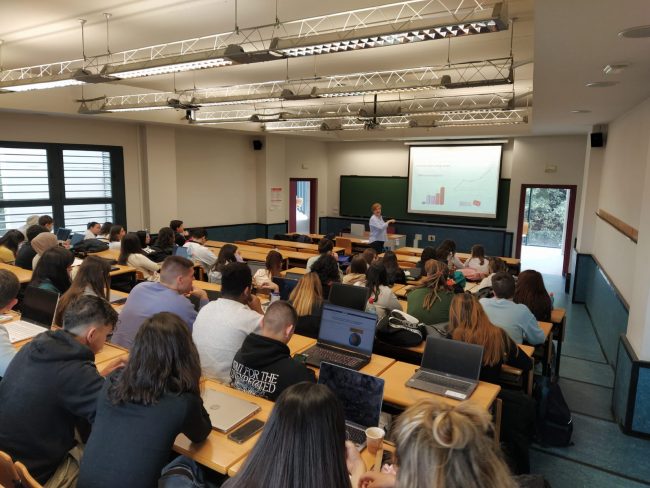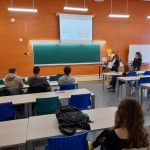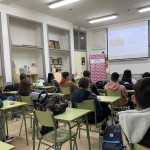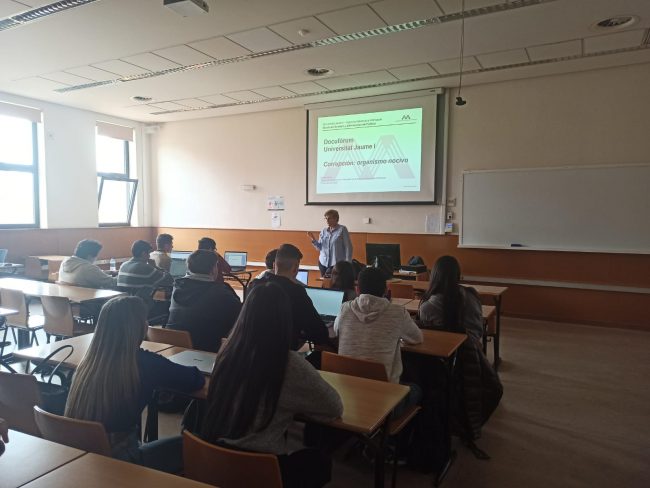#TrainingAVAF
On May 11, 2022, the José María Parra Secondary Education Institute hosted the first docuforum learning experience in the ESO training stage. This has been the first held by the Valencian Antifraud Agency in the entire Valencian Community in this educational stage.
The activity took place in the town of Alzira (Ribera Alta), within the subject of economics with the collaboration of teachers Ana Vercher and Marina Nicola.
The students watched, in a first session, the Pandora Box docuforum “Corruption: Harmful Organism” and raised their doubts and questions about how corruption affects our society, what measures can be carried out to end it and from what kind of institutions.
The second of the sessions of the training experience, elaborated from the interests and doubts of the students, was directed by Pilar Moreno, training technician of the Valencian Anti-Fraud Agency, present in the classroom.
After an introduction to the international and European organizations that have legislated in the area of prevention and fight against fraud and corruption, the Valencian Anti-Fraud Agency, a public entity with its own legal personality and independent in nature, was presented to the young people, only attached to Les Corts.
After explaining the various functions carried out by the AVAF (Prevention, training, analysis, and investigation, among others), the 4th ESO students learned about the Agency’s complaints box, the issues they are most alerted to and the work that makes it unique to the Valencian Antifraud Agency, the protection of whistleblowers.
The students participated very actively in the debate on corruption and noted the negative consequences that impact their daily lives, such as the lack of resources to improve public services (education, health, social services…)
Among the questions asked by young people between the ages of 15 and 17, they highlighted their interest in finding out what they themselves can do to put an end to corruption and whether the measures implemented in the Valencian Community to reduce it had really had an impact.
The Valencian Anti-Fraud Agency initiates with this docuforum a new way through which it can bring the institution, its objectives and functions closer to Compulsory Secondary Education classes, with the aim of participating in the creation of a more informed youth in the fight against corruption, integrity and transparency.
If you are a university, secondary or high school teacher and you are interested in having the training activity “Docuforum on ethics and public integrity” carried out in the subject you teach, do not hesitate to contact the Training Service of the Valencian Anti-Fraud Agency at through formacion@antifraucv.es.
